Pastoral
At Barney, we want every pupil to be happy and to flourish. A flourishing pupil is one that reaches their potential in every endeavour; both in the classroom and beyond. We want every pupil to know who they can turn to for support. Every Barney pupil has an extensive team around them to support them in their journey. We want every pupil and every parent to Be Part Of It. By working in partnership with parents, we aim to provide the best possible support for pupils both in school and at home.
Feeling happy, safe and secure is vital to a fulfilling and rewarding time at school and providing effective pastoral care underpins everything we do. Our aim is to provide an environment where every pupil is valued as an individual, can develop self-confidence, build lasting friendships, make the most of their talents and succeed academically. This has been recognised by the Independent Schools Inspectorate, who describe our pastoral, welfare and health and safety provision for both day and boarding pupils as “excellent”. Pastoral care is overseen by Mr Lavery, Deputy Head (Pastoral).
Houses
The eight Barney Houses are the hub of school life. Every pupil is allocated to a House for the entirety of their Barney Journey, in which they will form lifelong bonds with both their peers, the tutors and the Housemaster or Housemistress.
On a day-to-day basis in their House areas, pupils will meet their tutor and socialise at break times.
Every pupil is expected to represent their House in a variety of competitions throughout the year, providing a sense of loyalty and pride, as well as developing the skills of confidence, resilience and leadership.
Tutors
Every Barney pupil is allocated a tutor, who is part of the House. The tutor oversees the pupil’s academic progress and pastoral care, providing advice and support on a daily basis, as well as communicating regularly with parents. Each tutor group is arranged by year group and pupils will meet their tutor, as a minimum, every morning before school.
Pastoral Focus Groups
Anti-Bullying Ambassadors
Our Anti-Bullying Ambassadors are pupils who have been trained by The Diana Award in promoting a positive culture of acceptance and tackling bullying behaviour. There are over fifty trained ambassadors in the school, who meet every half-term to promote their anti-bullying messages.
Every Barney pupil has the right to be happy and to be themselves. Bullying is ‘repeated negative behaviour that is intended to make others feel upset, uncomfortable or unsafe’. We take any incidents of bullying very seriously. If a pupil feels they are being bullied or know someone who is being bullied, they are strongly encouraged to tell a teacher, speak to one of Anti-Bullying Ambassadors or use the desktop “Report Bullying” icon found on all school computers.
Diversity Focus Group
- The Diversity Focus Group meets every week to discuss how to promote diversity at Barney. The group aims to promote the following key messages across the school:
- To celebrate individuality and diversity within the Barney community
- To ensure the Barney community is inclusive of race, religion, sexuality, gender, age and interests
- To stand up for what is right for every individual and to challenge people who are unaccepting of others
- To take action to eliminate discrimination of any type
- To ensure every Barney pupil contributes positively to our Community and society in general
Online Safety Group
This group meets once every half-term to provide a forum for pupils to discuss any concerns regarding online safety on the school network.
Online safety is addressed through ICT and PSHCEE lessons.
Support for new pupils
Care for new pupils begins before they join the school with information and the opportunity to enjoy taster days. This is followed by induction in the Trinity Term before they join us full time. Support continues as new pupils join the school community as we seek to help them settle in as quickly as possible. As well as having their own Houseparent and Tutor, new pupils in Year 7 are allocated a “buddy” from Year 8 to act as their personal guide. Tutors speak with parents of new pupils after the first few weeks to let them know how their child is settling in. We warmly encourage all parents to visit the school to support their son or daughter in concerts, sports matches and other activities.
Sources of support
As well as their subject teachers, who are always available to discuss academic matters, all Senior School pupils have a tutor and housemaster or housemistress to oversee their personal welfare on a day to day basis. The school counsellor, independent listeners and the school chaplain are further sources of support. Father Darren has an ‘open door’ policy for any student who wishes to offload a burden or discuss a personal matter – of faith, friendship, family, their future or any other issues.
Pupils, too, play a significant role by providing peer support. We are proud of how our pupils are involved in offering care, guidance and support to each other. Younger pupils, in particular, value the opportunity to discuss issues with fellow students in an informal and accessible aspect of our extensive pastoral care structure.
Peer support includes:
Peer Support Group – a group of senior pupils volunteer each year provide a confidential, listening service to fellow pupils in Years 7-13. They are trained in school with input from the Samaritans and wear a badge to identify themselves.
Student Council – meeting on a regular basis, the Student Council has representatives from every year group, providing a voice to pupils’ ideas and opinions. Committees with responsibility for equal opportunities, cyber-bullying and anti-bullying also meet.
E-safety training is provided to all pupils in ICT lessons and the PSHE programme.
Support, Advice and Recommended Reading for Parents
Supporting a child through the teenage years can be challenging. It is important to us that we work in tandem with our pupils’ parents to provide the best possible care and support for their children.
We hope that that the recommended links and reading material might provide parents with additional, helpful information:
www.askfrank.com – information and advice on substance abuse
https://www.nhs.uk/conditions/ – a useful A-Z of health conditions
https://www.internetmatters.org/resources/ – advice for parents on screen use for all ages
https://learning.nspcc.org.uk/ – advice on a range of safeguarding issues
https://www.familylives.org.uk/advice/ – advice on all aspects of family life
https://www.antibullyingpro.com/ – website that supports our Anti-Bullying Ambassadors


